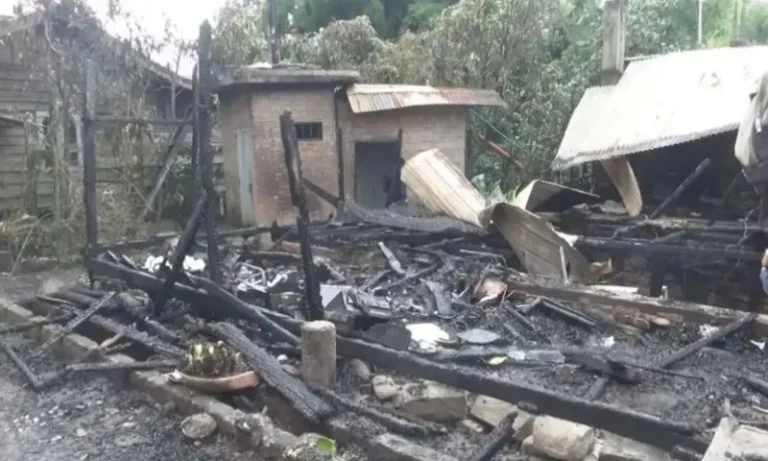Manipur Police Crackdown: Arrest of PREPAK (Pro) Cadre for Extortion Activities
Short Summary
Manipur Police recently arrested a key member of the People’s Revolutionary Party of Kangleipak (PREPAK-Pro), Salam Dhananjoy Singh, alias Muba, in connection with extortion activities across multiple districts in the state. The arrest highlights the ongoing efforts by law enforcement to tackle insurgent-related financial operations. This move aims to curb extortion practices that have long burdened businesses and individuals in the region, further solidifying the government’s resolve to restore peace and security in Manipur.
Full Article: Understanding the Impact of PREPAK (Pro) and the Role of Law Enforcement
Introduction: What’s Happening in Manipur?
Manipur, known for its rich culture and breathtaking landscapes, often makes headlines for the wrong reasons—insurgency and violence. Among the groups at the forefront of this turmoil is the People’s Revolutionary Party of Kangleipak (PREPAK), particularly its PRO faction. Recently, the arrest of Salam Dhananjoy Singh has sparked discussions about how these insurgent outfits operate and what measures are being taken to eliminate their influence.
Who is PREPAK-Pro?
PREPAK-Pro is one of several factions that splintered from the original People’s Revolutionary Party of Kangleipak. With its roots in the desire for an independent Manipur, this faction has been notorious for its illegal activities, including extortion, kidnappings, and violence. Despite a weakening insurgent structure in recent years, groups like PREPAK-Pro continue to cause disruption in the state.
Their modus operandi often involves targeting businesses, local officials, and even ordinary citizens, forcing them to pay “taxes” under the threat of violence. These funds fuel their operations, enabling them to procure weapons and maintain their networks.
The Arrest: A Significant Victory for Manipur Police
Salam Dhananjoy Singh, also known by his alias “Muba,” was apprehended in Kakching district. Singh’s alleged involvement in extortion activities across key districts such as Kakching, Thoubal, Imphal West, and Imphal East has brought a sense of relief to locals. Two mobile phones were recovered during the arrest, which authorities suspect were used to coordinate extortion efforts and communicate with other insurgent operatives.
What Does This Mean for Local Businesses?
If you’re a local business owner in Manipur, you’ve probably faced some form of intimidation from groups like PREPAK-Pro. This arrest sends a clear message: the government and law enforcement are working to dismantle these extortion rackets. While it’s just one step in a long journey, it provides a glimmer of hope for those tired of living in fear.
The Economics of Fear: How Extortion Impacts Manipur
Let’s break it down—extortion doesn’t just harm the immediate victim; it ripples through the entire economy. When businesses are forced to pay illegal taxes, their operational costs skyrocket. This stifles growth, discourages investments, and makes it harder for locals to find jobs. Essentially, insurgents are holding the state’s economy hostage.
Challenges in Combatting Insurgency
So, why can’t we just eliminate insurgency overnight? Well, it’s not that simple.
- Geographical Complexity
Manipur’s hilly terrain provides natural hideouts for insurgents, making it difficult for law enforcement to track and apprehend them. - Community Support
Some insurgent groups receive passive support from locals, either out of fear or shared ideological beliefs. This complicates efforts to isolate and weaken these factions. - Resource Constraints
Police forces in Manipur often work with limited manpower and technology, which can slow down operations. - Fragmented Factions
With multiple insurgent groups operating in the region, each with its agenda, it’s like playing whack-a-mole—dealing with one group often means another pops up elsewhere.
How Technology is Changing the Game
The use of advanced technology is revolutionizing counter-insurgency operations in Manipur. Here’s how:
- Mobile Tracking: The recovery of phones during Singh’s arrest underscores the importance of intercepting communications to dismantle insurgent networks.
- Surveillance Drones: Unmanned aerial vehicles are increasingly being used to monitor remote regions where insurgents often operate.
- Big Data Analytics: Analyzing patterns in insurgent activities helps predict and preempt their moves, making law enforcement more effective.
Government Initiatives to Address Insurgency
It’s not just about arrests and crackdowns. The government is taking a holistic approach to address the root causes of insurgency.
- Rehabilitation Programs
Insurgents willing to surrender are offered a second chance. They can reintegrate into society through vocational training and financial assistance. - Development Projects
The government is heavily investing in infrastructure, education, and healthcare to uplift the region. Better roads, schools, and hospitals go a long way in building trust among locals. - Negotiations and Peace Talks
Dialogue remains a cornerstone of conflict resolution. While not always successful, peace talks create a platform for insurgent groups to voice their grievances without resorting to violence.
The Role of Community Policing
One of the most effective tools in combatting insurgency is community engagement. By fostering trust between locals and law enforcement, the government hopes to create an environment where citizens feel safe reporting suspicious activities. Initiatives like community policing have shown promise in bridging this gap.
Why Socio-Economic Development is Key
Let’s face it—most insurgents don’t join these groups because they’re passionate about rebellion. It’s often about survival. Unemployment, lack of education, and poverty push young people toward these factions. Addressing these issues is crucial for long-term peace.
What’s Next?
The arrest of Salam Dhananjoy Singh is just one victory in the larger battle against insurgency. For lasting change, the government needs to stay consistent with its efforts. More arrests, better community engagement, and sustained socio-economic development will be the keys to turning the tide.
FAQs
- What is PREPAK-Pro?
PREPAK-Pro is a faction of the People’s Revolutionary Party of Kangleipak, an insurgent group in Manipur advocating for the state’s independence. - Why was Salam Dhananjoy Singh arrested?
Singh was arrested for his involvement in extortion activities targeting businesses and individuals across several districts in Manipur. - How does extortion affect Manipur’s economy?
Extortion increases operational costs for businesses, discourages investments, and creates an atmosphere of fear, stalling economic growth. - What is the government doing to tackle insurgency?
The government is employing a mix of arrests, rehabilitation programs, development projects, and peace talks to address insurgency in Manipur. - How can locals contribute to combatting insurgency?
Locals can assist by cooperating with law enforcement, participating in community policing programs, and providing intelligence about insurgent activities.




